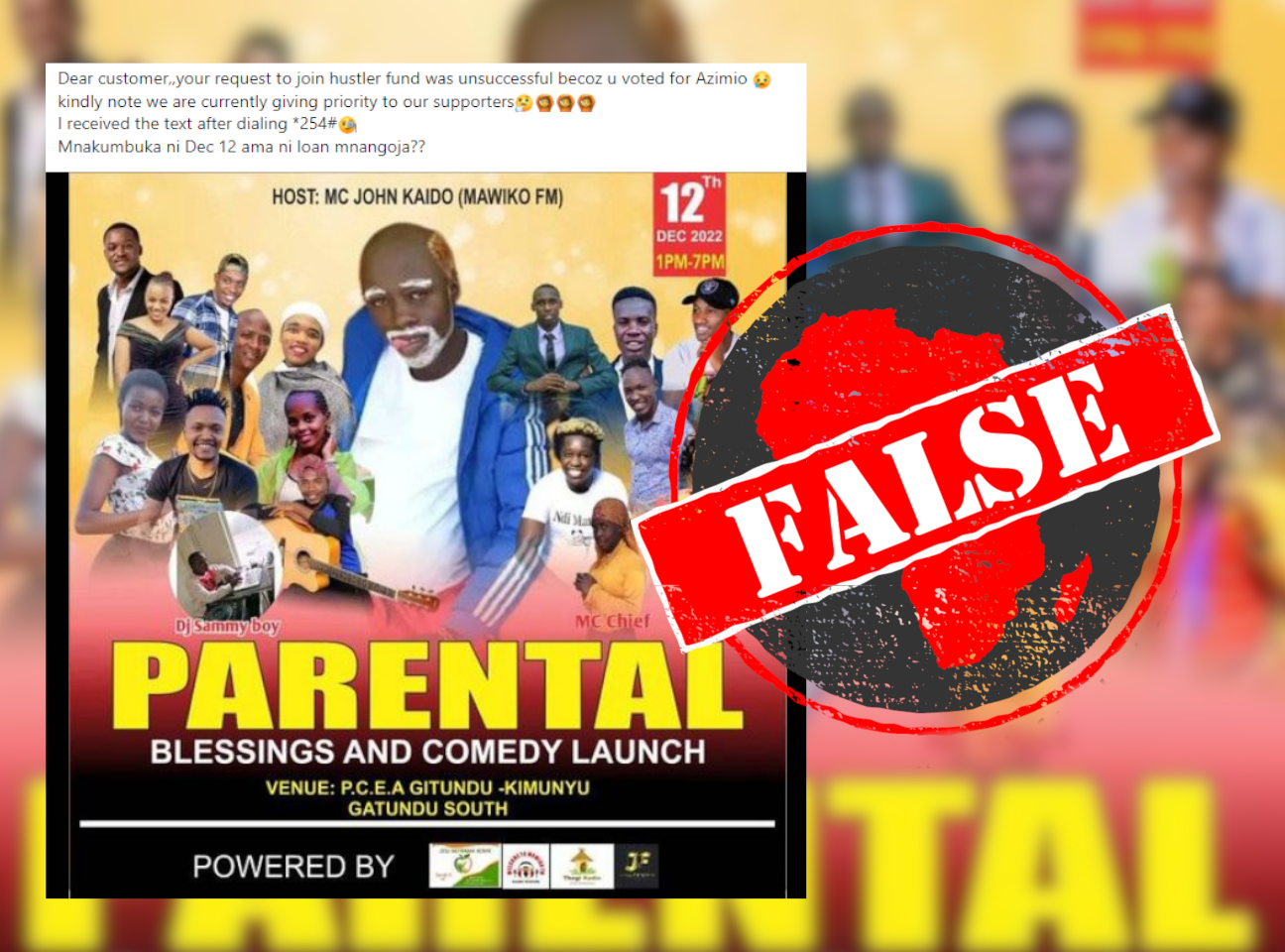IN SHORT: Is Kenya’s “hustler fund” meant to provide cheap loans only for supporters of newly elected president William Ruto? No, the claims on social media are false.
A Facebook post published on 30 November 2022 claims that Kenyans who voted for the opposition in August’s general elections can’t borrow from a new small loans fund.
The post reads in part: “dear customer, your request to join hustler fund was unsuccessful becoz u voted for Azimio,☹ kindly note we are currently giving priority to our supporters. I received the text after dialing *254#.”
Similar claims can be seen here and here. The message has also been shared many times on WhatsApp.
The “hustler fund” is a KShs50 billion state-backed scheme to provide cheap loans, including to small businesses, at a yearly interest rate of 8%. It was one of the campaign pledges by new Kenya president William Ruto, elected in August – although it was supposed to be interest-free.
The president launched the fund on 1 December. Within minutes, millions were able to register, check their loan limits and apply for loans on its website.
Ruto narrowly beat his main rival, opposition leader Raila Odinga, in the elections.
But is the low-interest fund only accessible to Ruto’s supporters?

Hustler fund accessible to all Kenyans
Africa Check searched credible news sources for information on who could borrow from the fund.
Kenya’s Business Daily says applicants must be at least 18 years old and have a national identity card. They must also have a registered SIM card, and have had a mobile money account with the Kenyan telecoms firms Safaricom, Airtel or Telkom for at least 90 days.
Voting in Kenya is by secret ballot, so it would be impossible for credit facilities to access information about who a person voted for in order to discriminate against them.
And the fund’s website doesn’t ask applicants who they voted for.
The social media messages about the fund are false.
Republish our content for free
For publishers: what to do if your post is rated false
A fact-checker has rated your Facebook or Instagram post as “false”, “altered”, “partly false” or “missing context”. This could have serious consequences. What do you do?
Click on our guide for the steps you should follow.
Publishers guideAfrica Check teams up with Facebook
Africa Check is a partner in Meta's third-party fact-checking programme to help stop the spread of false information on social media.
The content we rate as “false” will be downgraded on Facebook and Instagram. This means fewer people will see it.
You can also help identify false information on Facebook. This guide explains how.




Add new comment